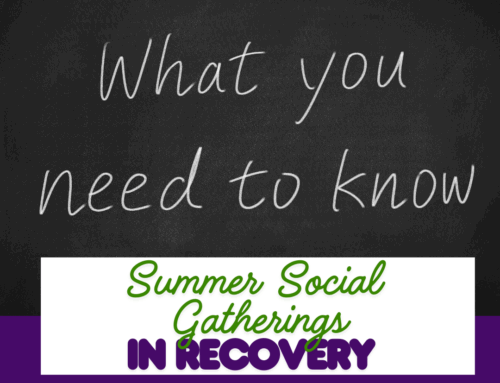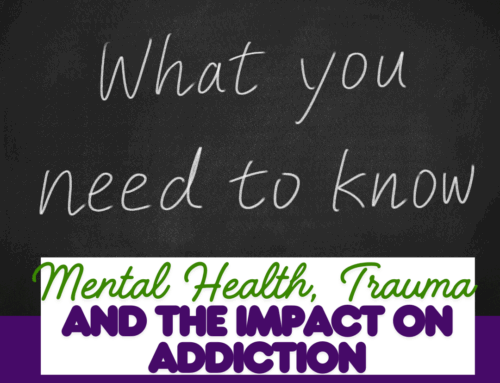What Does Wellness in Recovery Really Mean?
We have the word “wellness” right in our name for a reason. It’s a word that is used a lot, in various contexts, and it may mean different things to different people.
When it comes to wellness in recovery, however, whether it is from substance use, mental/behavioral health conditions, or any maladaptive behaviors that aren’t serving an individual’s health and well-being, wellness refers to the overall health of body, mind, and spirit. Wellness in recovery isn’t a passing event, it’s a way of life.
There are many pathways and programs for recovery, and we believe the overarching principle of any form of recovery should include healing of the whole self. Substance use, self-harm, food disorders, stress, anxiety, depression, etc. take large physical tolls on the body and the mind. Fortunately, advancements in health sciences have broadened our collective understanding of how to heal our whole self, not simply the obvious presenting symptoms.
The Importance of Self-Care: Learning loving-kindness starts by looking in the mirror.

The first, and likely most important, step towards wellness is cultivating self-love. Most people entering treatment feel defeated, depressed, anxious and confused. Changing our self-narrative from one of shame and negativity to one of positivity and hope takes time, practice, and surrounding ourselves with people, places, and things that support our health and well-being. These are not changes that are made quickly; we begin the process at Herren Wellness and develop – together – aftercare plans that support wellness internally and externally. But it all starts with the way we treat ourselves.
Practice talking to yourself the way you would a loved one. If you are speaking to yourself in a way you would never speak to a best friend, spouse, child, or family member, start by picturing the face of a loved one and pretend you’re speaking to them. Be kind to yourself. It can be uncomfortable; we are creatures of habit and it takes time to change thought patterns. One of the biggest rewards of recovery is learning to love ourselves.
Goodness In, Goodness Out: Healthy eating habits have the power to heal body and mind.

What we put into our bodies has a huge impact on our mental, physical and emotional wellness. Junk in, junk out. Goodness in, goodness out. Healthy eating boosts the brain, provides lasting energy, and proteins to build muscle and strength. Above and beyond the physiological benefits of healthy eating habits, there is another reason eating healthy is extra important for people in recovery: poor eating habits can act as a trigger for relapse, according to recent studies.
It can be difficult to see the correlation between food choices and the way we think of ourselves. People with substance use and behavioral disorders tend to reach for the ‘quick fix’ to emotional and/or physical discomfort. And let’s face it: junk food feels like it is satisfying cravings for comfort and/or reward (think “comfort food”), just like alcohol or drugs can feel like they are ‘fixing’ discomfort or unpleasant emotions (they aren’t). Practicing mindfulness around emotions helps break the impulse/action cycle. At Herren Wellness we begin habits, like mindfulness, that can be practiced for life. The process of cooking a healthy meal, for example, helps with impulse control, boosts creative energy and promotes mindfulness. Experiencing joy, satisfaction and pleasure without a harmful substance and/or behavior is another important milestone in recovery.
Fitness and Exercise: We all know they are good for you, but why are they especially important in recovery?

The psychological and physical benefits of fitness and exercise are well documented. Physical exercise causes the brain to release a number of neurotransmitters – chemicals that communicate information from the brain to the central nervous system. One neurotransmitter released during exercise is serotonin, which regulates mood. For some people struggling with depression, for example, serotonin is not properly processed by the brain. Exercise naturally increases serotonin levels, which is why no matter how much you didn’t want to exercise beforehand, you always feel better after physical activity. Exercise creates a natural mood-stabilizing effect in the brain which supports a healthy recovery.
Another key neurological effect of exercise is the release of the dopamine neurotransmitter. One of the functions of dopamine is to trigger a signal of pleasure to the brain for predicting and anticipating rewards. Alcohol, junk food, drugs, etc. release dopamine as well, however people with substance use disorder build a tolerance to their substance of choice and they need more of it for the desired effect. Releasing dopamine through healthy habits, like exercise, reduces cravings, promotes self-care, builds energy and good sleeping habits.
Herren Wellness Group’s Approach to Wellness:
We know that recovery, from anything, is so much more than ceasing maladaptive behaviors. Recovery is about uncovering the life experiences, behavioral health conditions, personal relationships and/or external influences that lead people to substance use and other behaviors that aren’t serving them. At Herren Wellness we start this process of self-discovery in a supportive, healing, residential environment. We develop actionable, sustainable aftercare plans that aren’t intended to cease when treatment ceases. We know wellness, like recovery, is a lifestyle change. It’s not one thing, one change, but rather many small changes that compile over time until wellness becomes a way of life.





